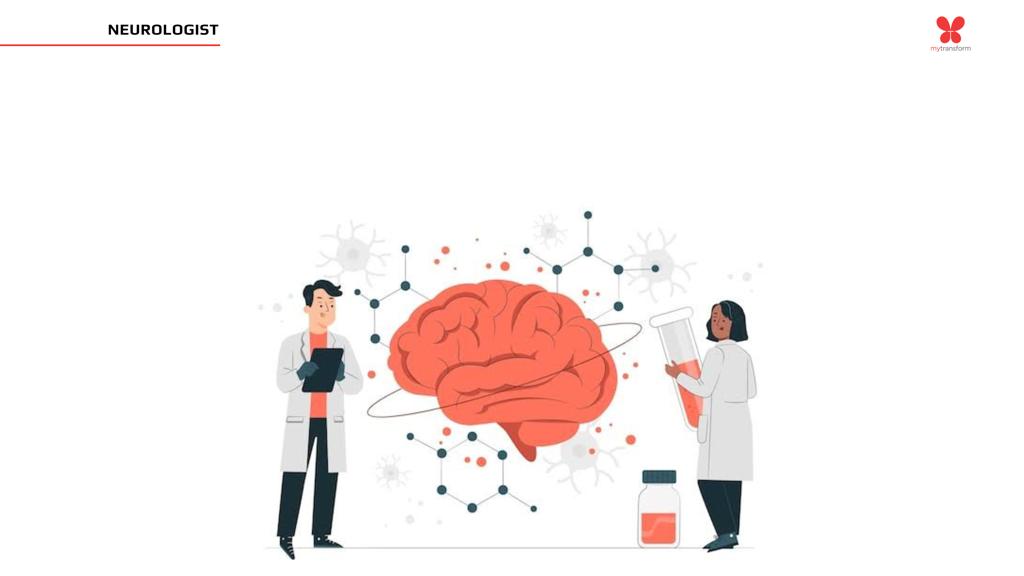
Neurology is a branch of medicine that deals with diagnosing and treating the brain and nervous system.
This is one of the most challenging and complex fields in medicine which deals with the central and peripheral nervous systems, brain, and associated muscular networks.
So if you are up for the challenge, we have the answers to ‘How to become a Neurologist in India?’, ‘What do Neurologists do?’, ‘What is the salary of a Neurologist in India’ & more.
Who is a Neurologist?
A Neurologist is a medical practitioner with expertise in diagnosing and treatment of diseases and disorders related to the Brain and Central Nervous System of the human body.
They diagnose a wide array of degenerative brain disorders like strokes, seizures, Alzheimer’s, Parkinson’s, dementia, epilepsy, trauma, and many more.
They make use of modern scanning and diagnosis methods such as Magnetic Resonance Imaging (MRI), Computerized Axial Tomography (CAT) scan, Electroencephalogram (EEG), and many other forms.
The work of a neurologist includes testing, diagnosis, and treatment of problems and complications with the spinal cord, associated muscles and tissues, and brain.
There is a rise in degenerative brain disorders due to growing work-life imbalance, stressful work, external pressures, etc.
Neurology is a promising field of medicine for aspiring candidates where practitioners are required to judge human behavior from medical aspects by utilizing state-of-the-art medical equipment for diagnosis.
Skills to Become a Neurologist
-
- Confident and Strong decision-making ability
-
- Excellent communication and Interpersonal skills
-
- Compassion and Empathy
-
- Strong work ethic
-
- Ability to work under pressure for long hours
-
- Maturity and emotional strength
-
- Intellectual ability to apply concepts of neurological medicine
-
- Solution-finding ability
Types of Neurologists
1. Pain Management and Palliative Care
Neurological deficits may lead to chronic pain and progressively deteriorate a patient’s mobility and mental capacity.
Though the organic causes for the concern can be cured by treating the underlying conditions, inorganic causes that are due to nervous system malfunctioning is complex and curable chances are less.
This is where the pain management specialist works well using a combination of drugs and therapies to help manage pain. Neurologists who are specialized in palliative care adopt therapies to make their neural pains tolerable.
2. Clinical Neurophysiologists
Clinical Neurophysiologists are basically diagnosticians. They evaluate neurological functions and an individual or a patient to diagnose any deficits using different testing methods and technologies such as EEG, MRI, CAT scan, and many more.
The underlying principle in these medical findings is to determine and analyze nerve impulses and brain reactions to electrical stimuli especially the EEG which is the first evaluation technique.
3. Vascular Neurologists
They specialize in the brain’s circulatory system rather than the nervous system.
Vascular Neurologists diagnose and treat neurological conditions like strokes and aneurysms with the aid of advanced radiological imaging and inserted miniature cameras or instruments through blood vessels guided to the region of concern.
These techniques will help them assess damage to the patient’s brain due to obstructions which can be repaired by cleaning and repairing using stents.
4. Neurodevelopmental and Neuromuscular Neurologists
The long-term development of a patient will be affected due to a number of neurological conditions such as cerebral palsy and down syndrome.
These patients often require a lifetime of care. Though specialists can establish partial independence, the disorder prevails.
Neuro-muscular disorders inhibit a patient’s physical development by interfering with communication between nerves and muscles.
Although the condition can’t be cured, neurodevelopment and neuromuscular neurologists help in improving the quality of life.
5. Pediatric Neurologists
They primarily deal with neurological issues in children who require additional and specialized care.
The nervous systems of children are in the development stages like their physic. Although their work profile is similar to neurodevelopmental and neuromuscular neurologists, they often deal with similar conditions in children.
Roles and Responsibilities of a Neurologist
-
- Neurologists should counsel patients on their background and neurological disorders.
-
- They should evaluate the right tests to diagnose an issue.
-
- They have to diagnose complex neurological issues with the help of patient history and carry out new tests.
-
- Neurologists should prescribe and administer treatment and medications.
-
- They should monitor the cognitive side effects of medication and treatment.
-
- Prescribe supportively and specialized care for patients.
-
- Liaise with other medical professionals in the field and hospitals.
Eligibility to Become a Neurologist
To become a neurologist in India, the following eligibility qualifications are required:
-
- Should have cleared the NEET entrance examination and have secured admission to an MBBS course in an Indian medical college.
-
- Must have completed MBBS (Bachelor of Medicine and Bachelor of Surgery).
-
- Should clear NEET PG entrance examination and secure seat for MD (Doctor of Medicine) or equivalent DNB course with 50% aggregate in MBBS.
-
- 3 years MD specialization in Neurology
-
- Complete a one-year internship with a reputed hospital with a neurology specialty and complete a residency program.
-
- Further specializations and certifications are available if interested.
How to Become a Neurologist In India? – Step-by-Step Guide
Here is a step-by-step guide to becoming a neurologist in India:
-
- Complete 12th standard or +2 with physics, chemistry, and biology as main subjects.
- Clear the NEET entrance examination and secure admission for MBBS in an Indian Medical College.
- Complete 5.5 years of MBBS (Bachelor of Medicine and Bachelor of Surgery) course with 50% aggregate.
- Further, clear NEET PG examination to secure admission for Post graduation course MD (Doctor of Medicine) in Neurology.
- Complete a 3-year specialization course and take up an internship with hospitals having a neurology department.
- Complete the residency program in a reputed hospital and practice to become a neurologist.
Career Opportunities for a Neurologist
Due to the rise in medical conditions with neurological issues, the prospects of neurologists are high and promising.
Reputed and top hospitals like AIIMS, NIMHANS, Manipal hospitals, Apollo hospitals, Medanta, etc are actively expanding their neurology departments to cater to rising neurological disorders.
While neurologists can find employment in the neuro-science, they can also open private practices and also opt for teaching in medical colleges. There is also growing demand for neurologists in the research field and in Pharmaceutical companies.
Cardiologist vs Neurologist
| Cardiologist | Neurologist |
| Focus on the heart and circulatory system. | Focus on the brain and nervous system. |
| Individuals experiencing chest pain or shortness of breath are referred to cardiologists. | Individuals struggling with vision, coordination, and speech are referred to neurologists. |
| The heart, arteries, and veins are primarily focused. | The brain, spinal cord, and nervous system are primarily focused. |
| An Echocardiogram (ECG) is the first diagnosis method. | An Electroencephalogram (EEG) is the first diagnosis method. |
| Cardiologists check for blockages in veins and arteries that could potentially risk the heart. | Neurologists analyze brain response to electrical impulses to determine causes for failed neural coordination. |
Top Medical School for Neurologists in India
India has medical institutions with different specialties all across the country. The top colleges for pursuing Neurology as a specialty in India are
-
- National Institute of Mental Health and Neuro-Science (NIMHANS), Bengaluru
-
- All India Institute of Medical Sciences (AIIMS), New Delhi
-
- Christian Medical College (CMC), Vellore
-
- All India Institute of Medical Sciences (AIIMS), Jodhpur
-
- Kasturba Medical College, Manipal
-
- King George’s Medical University, Lucknow
-
- All India Institute of Medical Sciences (AIIMS), Bhubaneshwar
-
- Armed Forces Medical College, Pune
-
- St. John’s Medical College, Bengaluru
-
- Jawaharlal Institute of Post-Graduate Medical Education and Research, Puducherry
Salary of a Neurologist
The entry-level salary of a neurologist in India is Rs.12 lakhs/annum and ranges up to Rs.72 lakhs/annum depending upon popularity and experience.
It may be less in the case of public research institutions and hospitals. Popular neurologists hold private practices where they charge depending upon the complexity of the case to patients and hospitals for their services.
Pros & Cons
The pros of becoming a Neurologist:
-
- Highly respected profession
-
- Contribution to Society
-
- Highly paid and in-demand specialization
-
- Continuous enhancement of medical knowledge
The cons of becoming a Neurologist:
-
- Emotional discomfort
-
- Long work hours and stressful job
-
- Long academic period to become a neurologist (More than 10 years)
-
- Extensive training required
Summary
-
- Neurology is a prominent field of medicine specializing in diagnosing and treating brain and nervous system-related diseases and disorders. The person who specializes in Neurology is a Neurologist.
-
- To become a neurologist in India, an aspirant must hold an MBBS graduation along with MD in neurology.
-
- The profession of a Neurologist is quite stressful and requires long working hours and being on standby for emergencies.
-
- Although a highly paying specialization in medicine, becoming a neurologist takes more than 10 years of academics and residency to practice on their own.
Frequently Asked Questions
After completing the 12th standard, it takes a minimum of 10 years to get a specialization as a Neurologist.
Neurology is a highly demanded medical specialization and is a great career choice in the field of medicine.
NEET is mandatory for securing admission to the MBBS course and NEET PG is mandatory for securing admission to the MD (Doctor of Medicine).
Neurologists typically work up to 60 hours per week and are required to arrive on call in case of emergencies.
To become a neurologist, an MBBS graduate must pursue an MD (Doctor of Medicine) in Neurology specialization.
Due to rising neurological disorders in young children, Pediatric neurology may be the best subject to pursue.
Being a Neurologist is a stressful job where long hours have to be put in.
There is no gender bias in the field of medicine. Anyone can be a neurologist.
Yes, neurologists get to have a week off but they are required to be on call for emergencies.
Absolutely, doctors get to have a social life. But, they should always be on standby to attend to emergency situations.




